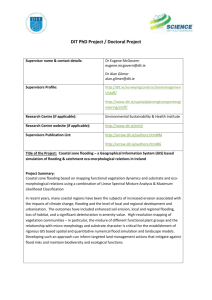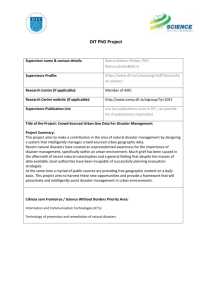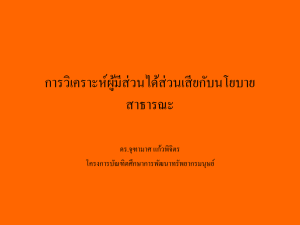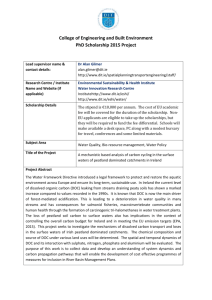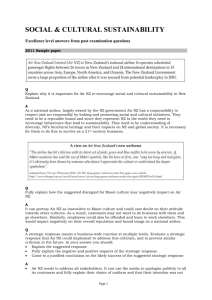Corporate_Sustainability_&_Brand_
advertisement
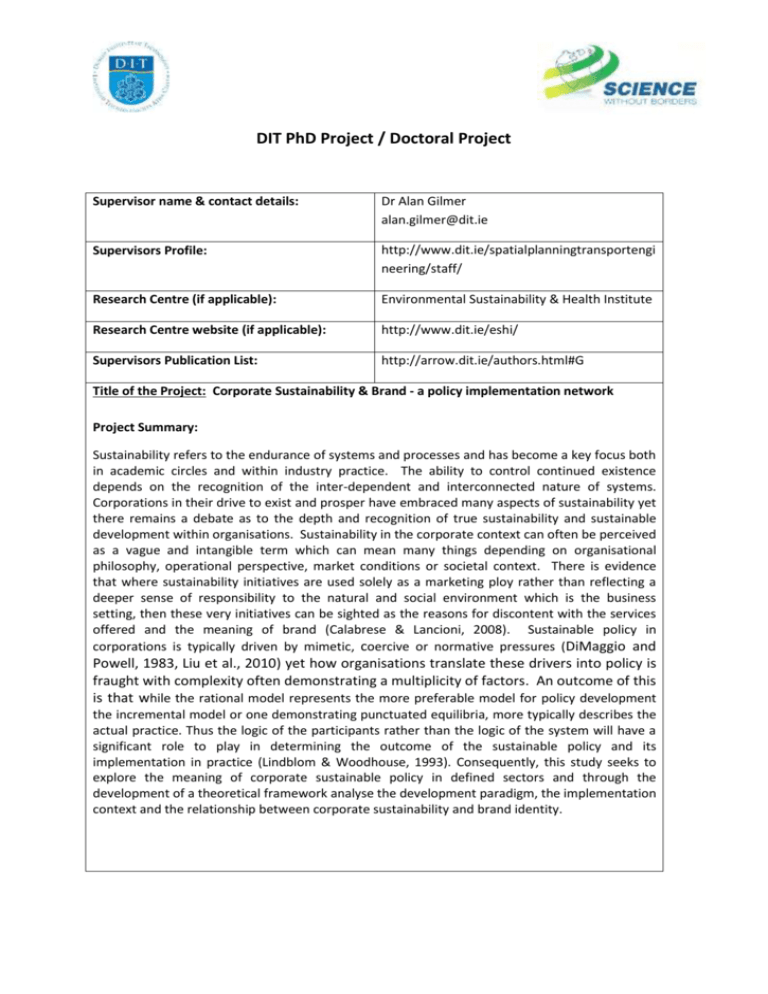
DIT PhD Project / Doctoral Project Supervisor name & contact details: Dr Alan Gilmer alan.gilmer@dit.ie Supervisors Profile: http://www.dit.ie/spatialplanningtransportengi neering/staff/ Research Centre (if applicable): Environmental Sustainability & Health Institute Research Centre website (if applicable): http://www.dit.ie/eshi/ Supervisors Publication List: http://arrow.dit.ie/authors.html#G Title of the Project: Corporate Sustainability & Brand - a policy implementation network Project Summary: Sustainability refers to the endurance of systems and processes and has become a key focus both in academic circles and within industry practice. The ability to control continued existence depends on the recognition of the inter-dependent and interconnected nature of systems. Corporations in their drive to exist and prosper have embraced many aspects of sustainability yet there remains a debate as to the depth and recognition of true sustainability and sustainable development within organisations. Sustainability in the corporate context can often be perceived as a vague and intangible term which can mean many things depending on organisational philosophy, operational perspective, market conditions or societal context. There is evidence that where sustainability initiatives are used solely as a marketing ploy rather than reflecting a deeper sense of responsibility to the natural and social environment which is the business setting, then these very initiatives can be sighted as the reasons for discontent with the services offered and the meaning of brand (Calabrese & Lancioni, 2008). Sustainable policy in corporations is typically driven by mimetic, coercive or normative pressures (DiMaggio and Powell, 1983, Liu et al., 2010) yet how organisations translate these drivers into policy is fraught with complexity often demonstrating a multiplicity of factors. An outcome of this is that while the rational model represents the more preferable model for policy development the incremental model or one demonstrating punctuated equilibria, more typically describes the actual practice. Thus the logic of the participants rather than the logic of the system will have a significant role to play in determining the outcome of the sustainable policy and its implementation in practice (Lindblom & Woodhouse, 1993). Consequently, this study seeks to explore the meaning of corporate sustainable policy in defined sectors and through the development of a theoretical framework analyse the development paradigm, the implementation context and the relationship between corporate sustainability and brand identity. Please indicate the student requirements for this project: Minimum 2.1 (life sciences, environmental science, environmental management, geography, engineering or related disciplines considered) Deadline to submit applications (only for funded projects) Please choose College as appropriate Arts & Tourism Business Engineering & Built Environment Science & Health Ciência sem Fronteiras / Science Without Borders Priority Area: Engineering and other technological areas Pure and Natural Sciences (e.g. mathematics, physics, chemistry) Health and Biomedical Sciences Information and Communication Technologies (ICTs) Aerospace Pharmaceuticals Sustainable Agricultural Production Oil, Gas and Coal Renewable Energy Minerals Biotechnology Nanotechnology and New Materials Technology of prevention and remediation of natural disasters Biodiversity and Bioprospection Marine Sciences Creative Industry New technologies in constructive engineering Capacity Building for technological personnel





